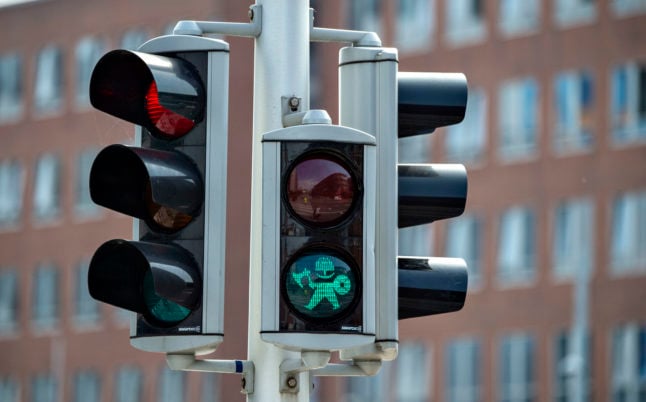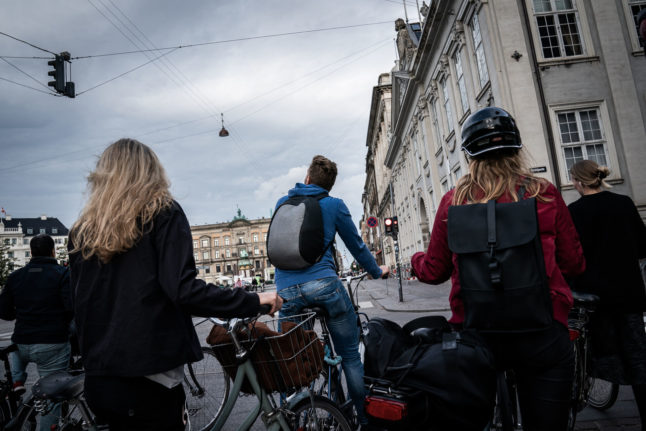It’s no different in Denmark with cultural differences ranging from crossing the road to expectations of service in cafes and attitudes to small talk.
Here are six mistakes you’d be forgiven for making when you first move to Denmark.
Expecting everyone to say ‘please’ in cafes and restaurants
It’s well-known in Denmark that you don’t need to say please when ordering something in a café or restaurant, but newcomers to the country might be oblivious to this fact.
While you might not know this to start with, the Danish language has no word which directly translates to ‘please’. This means people don’t say ‘please’ when, for example, ordering a drinking and can sometimes speak very directly.
It’s easy to interpret this for rudeness but it’s really just a reflection of different ways of speaking. Danes don’t consider each other to be rude when they use direct forms of address in places like cafes. They also make up for the lack of ‘please’ in the Danish language by being prolific at using tak, the Danish word for “thank you”.
READ ALSO: Why never saying ‘please’ doesn’t make Danes rude
Crossing the road when the light is red
For people from the UK, if there are no cars coming but the light is still red at a zebra crossing (kryds) or junction, it’s generally accepted that it’s okay to cross the road. In fact, most people probably wouldn’t think twice about it.
In Denmark meanwhile, people wait until the light has turned green – even if it means waiting on the side of an empty, quiet street for what seems like minutes, without any cars going past.
Why? Because there are fines for jaywalking in Denmark. While it’s rare, occasionally police do appear at pedestrian crossings and issue fines to pedestrians who disobey the country’s traffic laws by crossing the road on a red.
READ ALSO: Why don’t Danish drivers stop at pedestrian crossings?
Saying “I am busy” when you are… busy
This is not related to Denmark’s favourable work-life balance but more to a linguistic quirk which is very easy to fall foul of when you are still learning to speak Danish.
If you have to drop off the car at the garage, pick up the children from school, work from home and get the laundry done by 3pm, you would say, in Danish, jeg har travlt.
Translated literally, this means “I have busy”, which obviously doesn’t make sense in English (a more accurate translation might be something like “I have business”).
English speakers who are neophytes to Danish often say jeg er travlt, which means “I am busy” but doesn’t make any sense in Danish (“I am business”?).
This particular language hurdle has even made it into Danish film, where an Italian character in the 1999 romantic comedy Den eneste ene (The One and Only) is pulled up by his Danish girlfriend for continually making the error.
Attempting small talk with strangers
For British people, small talk about the weather is a guaranteed conversation starter – no matter how cliche that might be. Americans and Australians are even less likely to hold back and will happily greet strangers and start a conversation on a range of topics.
In Denmark, small talk is not as common and people generally prefer to have meaningful conversations about topics they are interested in.
Danes can also be more reserved around people they are not familiar with and shy away from asking personal questions until they know them better.
So, if you try making small talk at a bus stop and it falls flat, don’t take it personally. It’s just not the done thing in Denmark.
Arriving late
Punctuality is highly rated in Nordic cultures and lateness can be seen as being rude. If you think you are going to be late it’s a good idea to call or text to let the person know in advance.
Turning up late without warning is seen as bad manners and won’t win you any brownie points.
Whether it’s a birthday celebration, konfirmation, Easter lunch, family get together or university reunion, Danes tend to arrive punctually. This is not the case in all cultures, so it’s worth aiming for the exact time you’ve been told the occasion starts, rather than interpreting too much leeway.
If you arrive ten minutes too early or too late you should be fine, but anything more than that will probably need some degree of declaring undskyld (sorry) to smooth over any awkwardness.
Not offering to help the hosts
Danish culture is quite egalitarian and, should you get to the (quite advanced) stage of being invited to a Danish home, there’s no harm in asking the host if you can help with the dishes or where you should take your plates once the meal is done.
You might notice other guests take their dirty crockery and silverware out to the kitchen with them as they leave the table – if so, feel free to follow their example.
Although your offer to help with the dishes might be turned down, it will probably be appreciated and you certainly won’t be imposing.



 Please whitelist us to continue reading.
Please whitelist us to continue reading.
Member comments